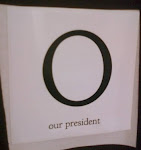Denise Duhamel at Books and Books from Andrew Hevia on Vimeo.
Over at Fans of Denise Duhamel OR A Group of Duhamalites, Denise answers a question a month from a member of the FB Group. I'm sharing the May question and answer.
Question from Dustin Brookshire:
Recently, Steve Fellner (poet and critic) wrote an entry in his blog, Pansy Poetics, analyzing some of your poetry. His blog entry led to a series of great comments from his readers and a discussion on Light Verse in your work. The comments have led me to ask this: What role do you think Light Verse plays in contemporary poetry? (Click here for Steve's post on Denise's work.)
Denise Duhamel's Answer:
I saw that. At first, I must admit that I was horrified that Steve Fellner—whose work I love! I chose is first book for the Marsh Hawk prize—thought some of my poems were “light verse.” In my mind, light verse was synonymous with silliness. I guest-edited an issue of a literary magazine Ocho called “Florida Funnies” and I am now co-editing an issue of essays about humor in contemporary poetry for a linguistics magazine Humor. I hadn’t really even brought up the term light verse. I think, as Sean points out in one of the blog comments, “because of consumer culture, light=less than? Less calories, less fat, less flavor?” I thought that too. I even thought “Lite Poetry.” But researching light verse, and seeing its long and proud tradition, I am happy to be included. (Puns? Guilty as charged. Alliteration? Guilty as charged. Wordplay? Guilty as charge.) A lot of poets feel similarly afraid of the term “confessional,” which has recently gotten a bad rap. So poets with confessional leanings might deny they are writing confessional poetry or try to call it something else. In any case, in the end, I am happy that Steve associated my work with light verse—or even camp. While Steve is perfectly correct in quoting Sontag, she also says that camp is a way of consuming or performing culture "in quotation marks." And I really do feel I try to do that, so I’m no longer leery of the labels light verse or camp. I like Steve’s blog for the questions it raises about contemporary poetry and trying to categorize it. Do you remember that clapping song? Categories, names of…Colors…Then each child would clap and say a color until they couldn’t think of any more. We could do the same for Poetry.
Child one: Categories.
Child two: Names of.
Child one: Poetry
Child two: Light verse.
Child one: Confessional.
Child two: L=A=N=G=U=A=G=E.
Child one: Formal.
Child two: Post-confessional.
Child one: Transgressive.
Child two: Of Witness.
Child one: Neo-formal.
Child two: Feminist.
Child one: New York School.
Child two: New York School—second generation.
Child one: New York School—third generation.
Child two: Oulipo.
Child two: Harlem Renaissance.
Child one: Nature.
Child one: Surreal.
Child two: Beat.
Child one: Romantic.
Child two: Modern.
Child one: Post-modern.
Child two: Dada.
Child two: Prose poems.
Child one: Haiku.
Child one: Pansy Poetics…
Having said that, I think Light Verse may play a part in contemporary American poetry in that it’s a way to fight back against the jingle, the slogan, our consumer culture. Maybe we need tee shirts? Heavyweights of Light Verse.




1 comment:
I became a Duhamelite the other day...Thanks for that, and this!
Post a Comment